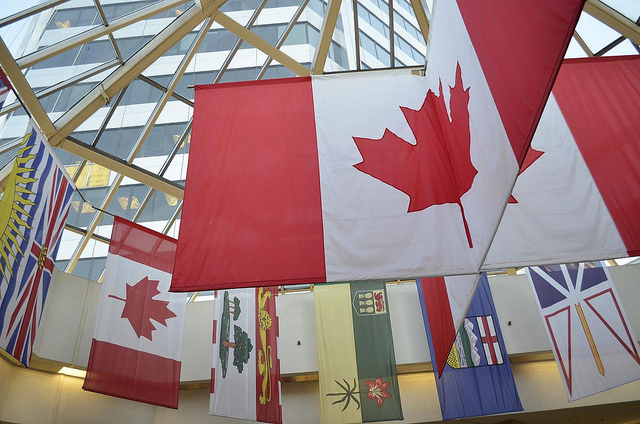It’s strategy re-think time in Ottawa. With Parliament headed towards its Christmas recess, leaders will be doing their assessment of what is working, what needs to be changed, and what lies ahead.
The Conservative strategy is not going to change. Say the Canadian economy is strong, ignore evidence to the contrary, and fight off questions about other issues such as the Prime Minister’s responsibility in a criminal matter being investigated by the RCMP, involving his former chief-of-staff paying off a Senator.
New Democrats have been attacking the credibility of the Prime Minister, using his conflicting statements to the House of Commons about the payment by the PMO of $90,000 to Senator Duffy, to show Stephen Harper’s disdain for Parliament, and the truth.
The Liberals have a celebrity as leader and want to keep him in the public spotlight, without committing the party to any particular course of action. With Justin Trudeau as leader, the Liberals lead the polls as the first choice for 35 per cent of Canadians, were an election held today. As long as the Liberals keep that lead (Conservatives are at 29 per cent, NDP at 23 per cent), their strategy is unlikely to change.
The weakness in the Conservative strategy is that except for the oil and gas sector, the Canadian economy is struggling. What we call for convenience “the economy” is really a number of sectors. Over the last 12 months, exports of energy — driven by oil and gas — show a surplus of $62.9 billion; exports of everything else show a deficit of $72.9 billion.
Trying to pretend the economy is strong in the vote-rich provinces of Ontario and Quebec, when analysis shows regional leading sectors are weak, can only work for so long.
The weakness of the New Democratic strategy is that while the Leader of the Opposition scores points in the House of Commons and the party talks about “rolling up the red carpet” (abolishing the Senate), electoral success requires a jobs and income strategy people can believe in.
Success in Canadian politics requires understanding how big economic issues play out (in two languages) across each region. Traditionally it also means keeping 13 provincial and territorial premiers from turning against the centre. So far Harper’s approach of ignoring the provinces has not cost his government politically.
Canada’s premiers met last week in Toronto, and there are signs major differences with the Harper Conservatives are emerging (the meeting was sadly overshadowed by the antics of Mayor Ford).
Add up the concerns raised, and the premiers are saying it is time to establish a new public agenda for Canada, one also focused on growing the economy and jobs.
The host premier wants to see expanded public pensions on the public agenda. How are people to survive on a $12,500 maximum CPP? Premier Wynne is prepared to talk about establishing an Ontario Public Pension if Ottawa does not show leadership in expanding the CPP.
Approval requires seven provinces with 50 per cent of the population to say yes. Changes take years to implement, and premiers (other than Redford of Alberta) want the issue addressed as soon as this December’s meeting of provincial finance ministers with the federal minister.
Pauline Marois is concerned that post Lac Mégantic the federal government still has not accepted the Transport Safety Commission’s recommendations on rail transport of dangerous goods and materials. Ottawa’s constitutional power over interprovincial and international trade makes it a key player in overall resource development. The Conservative preference to let private corporations exercise unregulated power has the potential to cause greater political problems with each successive accident (two derailments have occurred in Alberta since the Lac Mégantic catastrophe).
All the premiers are unhappy about a decision to cut $300 million from job training and change the program so that it no longer is available to the unemployed. Under the so-called Canada Job Grant proposal, corporations and business would get to select employees to be trained. Premier Greg Selinger of Manitoba wants to know how the federal government can justify eliminating those most in need of help from the program.
At the closing press conference (begins at 14:43), Premier Robert Ghiz of Prince Edward Island spoke eloquently about the abandonment by Ottawa of a nation-building agenda.
The provinces are equal partners with Ottawa in the Canadian federation, Ghiz said. He pointed out that Ottawa had decided to drop a skills-training program with an 86 per cent success rate placing people in jobs. Ghiz was astonished such a decision could be made without any effort to examine evidence about how the program worked or without consulting with the provinces.
The 10-year Canada Health Accord expires in 2014. Apparently the Conservatives have no intention of renewing it. Yet progress on health care is disappointing, and the premiers want help in meeting targets set a decade ago that still have not been met.
The Conservatives have been touting Canada as outperforming other nations, but a sluggish Canadian economy remains a sluggish economy irrespective of how bad things get in the EU or the U.S. Provincial premiers speaking out about the inadequate efforts being made by the Conservatives to address major issues is not what a Conservative government under stress wants to hear.
It will be interesting to see if the Official Opposition (or the Liberals) decide to make key issues being raised by the premiers their own when challenging the Conservative fictions about the strong Canadian economy.
Duncan Cameron is the president of rabble.ca and writes a weekly column on politics and current affairs.
Photo: Sergey Shpakovsky/flickr




